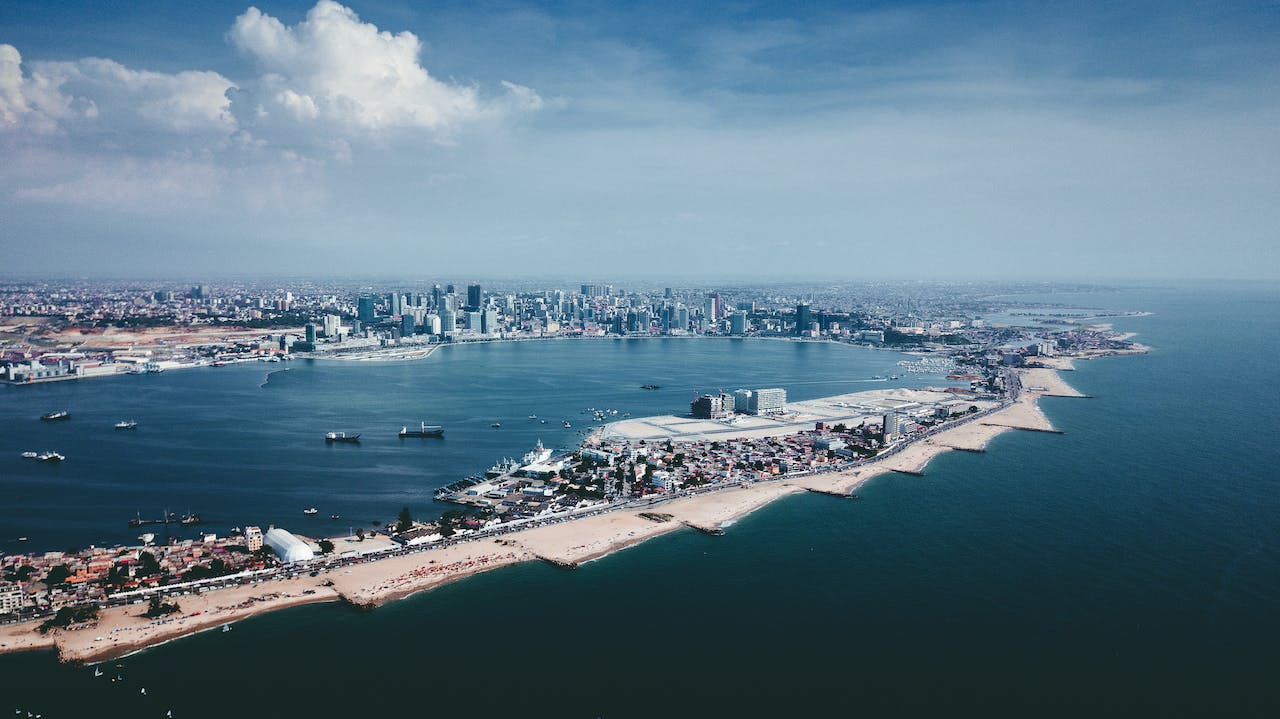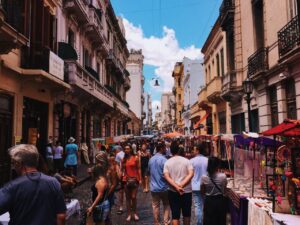1: There is diversity in geography and culture.
Southern Africa’s Angola is home to a diverse range of national and cultural expressions. Its varied topography includes lush forests and interior plateaus, as well as the Atlantic Ocean coastline. Spreading across more than 1.2 million square kilometers, this nation is home to a variety of ecosystems, such as savannas, mountains, and the tropical rainforests of Cabinda. The varied terrain affects the people who live in various areas and shapes their culture, way of life, and economic activity.
With its diverse ethnic population, Angola’s culture is a patchwork of cultures. Different traditions, dialects, and practices are brought by the prominent ethnic groups, such as the Mbundu, Bakongo, and Ovimbundu. In addition, the language, food, and architecture all bear the permanent imprint of Portuguese colonial control.
2: Independence and History
The independence movement and the ensuing wars have defined Angola’s history. When explorers arrived in the late 15th century, the nation was subjected to years of colonization, mostly under Portuguese control. Angola’s administration, economics, and culture have all been profoundly impacted by Portuguese colonialism. After decades of exploitation and tyranny, nevertheless, it also gave rise to independence dreams and resistance groups.
Despite Angola’s significant achievement of independence in 1975, a bloody civil war ensued. For almost thirty years, the People’s Movement for the Liberation of Angola (MPLA), the National Front for the Liberation of Angola (FNLA), and the National Union for the Total Independence of Angola (UNITA) engaged in a bloody and protracted power war that left a deadly legacy.
3: The Economy and Natural Resources
Rich in natural resources, especially oil and diamonds, Angola is a blessed country. The economy of the nation has benefited greatly from its status as one of Africa’s leading oil producers. Yet, Angola still has economic problems, such as poverty, inequality, and an over reliance on oil exports, despite its abundance of natural resources. In an effort to become less reliant on oil income, the economy is progressively expanding into industries including mining, tourism, and agricultural.
Angola’s economy has also been greatly impacted by the discovery of massive diamond mines there. On the other hand, the trafficking in these valuable stones has fueled violence and provided funding for insurgencies, tarnishing the diamond business. In order to guarantee ethical sourcing and stop conflict finance, efforts have been made to control the diamond trade.
4: Difficulties and Advancements
Since the terrible civil war came to an end in 2002, Angola has recovered very well. There have been initiatives to diversify the economy, improve the healthcare and education systems, and restore infrastructure. The aftermath of the fighting, however, continues to present problems, with landmines endangering civilians and impeding the growth of agriculture.
To promote sustainable growth, fight corruption, and enhance governance, the government has been working hard. Despite regional disparities in advancement, efforts to invest in infrastructure, healthcare, and education are increasingly showing beneficial outcomes.
5: The Potential for Tourism and Cultural Heritage
With its varied landscapes and rich cultural legacy, Angola has enormous tourism potential. Visitor attractions in Angola include the breathtaking natural beauty of national parks like Quiçama National Park and Iona National Park, as well as the ancient colonial architecture found in cities like Luanda.
Both residents and tourists find great resonance in the nation’s colorful music and dance traditions, which are influenced by numerous ethnic groups. Some of the rhythms that highlight the nation’s rich cultural tapestry are semba and kuduro. To fully realize this potential as a catalyst for economic expansion and international engagement, initiatives are underway to boost tourism and protect culturally significant locations.
Conclusively, Angola presents a formidable combination of potential and challenges due to its multifaceted culture, rich natural resources, history of struggle and perseverance, and continuous development initiatives. With a complicated fusion of modern goals and historical legacy, it continues on its path toward development and wealth.





